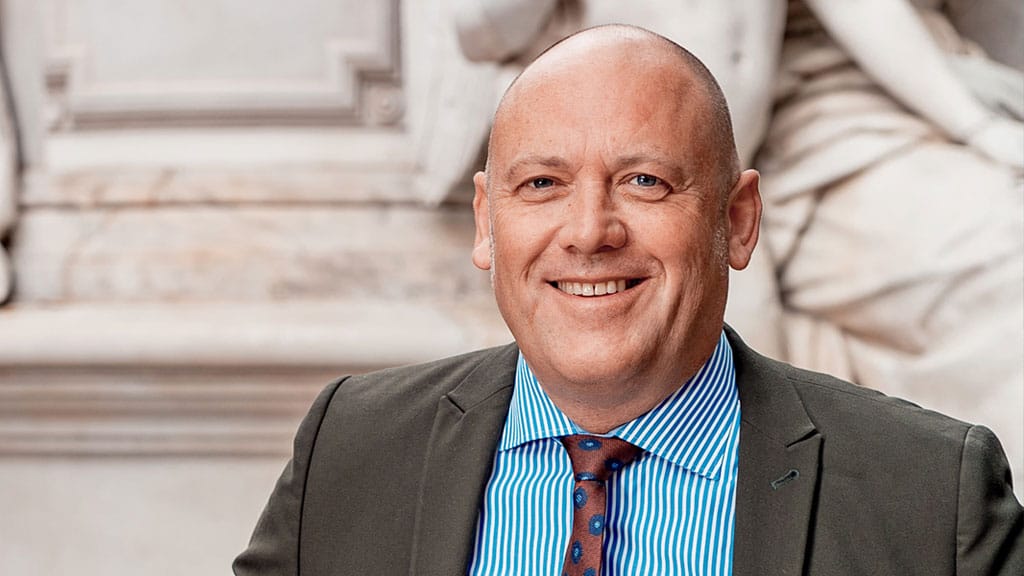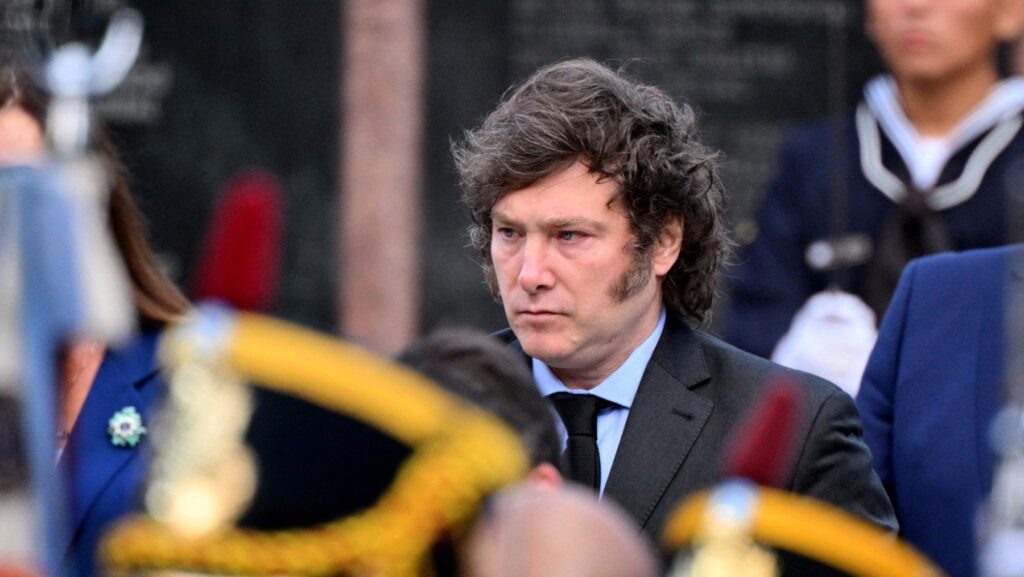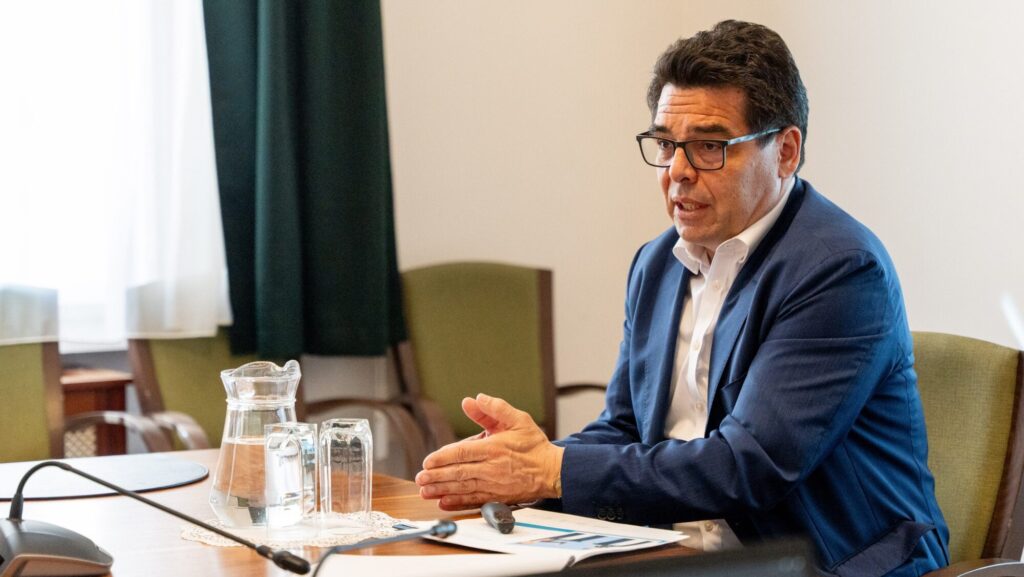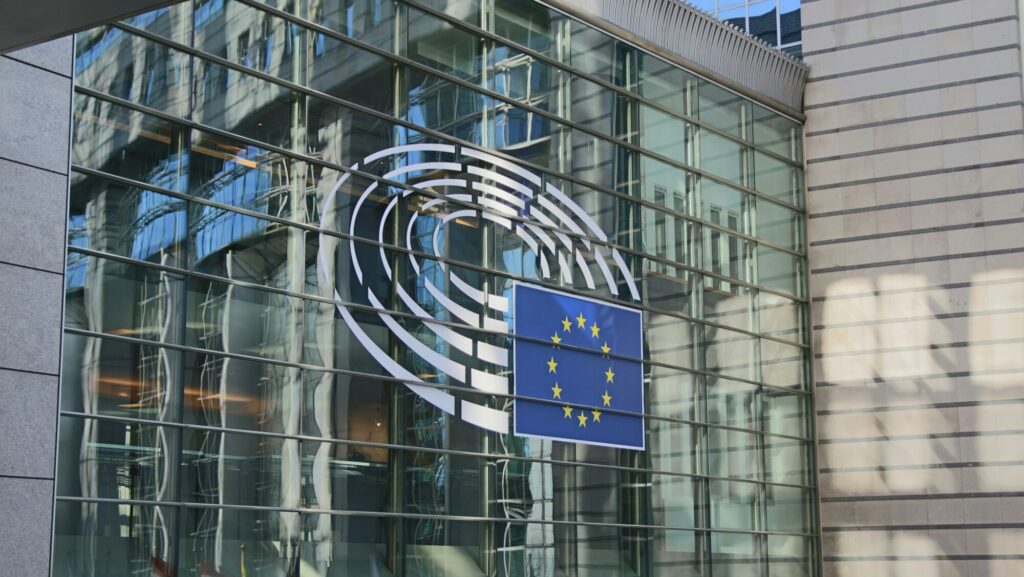Joachim Paul has been MP for Rhineland-Palatinate since 2016 and spokesman for education and digitalisation. He was a member of the AfD’s federal executive committee from 2019 to 2022. He has been supporting German minorities in Central and Eastern Europe for many years and writes regularly for the magazine Freilich (Austria) and the weekly Junge Freiheit (Berlin). He recently gave the following interview.
Why should a German conservative vote for the AfD?
AfD is the only party that fights politically against mass immigration in Germany and is the first choice of all those who feel like foreigners in their own country. Our cities are changing radically in the direction of chaos, multiculturalism, and violence against native Germans. All the other parties do not want to change Merkel’s open borders policy. Every month, more migrants are arriving in Germany than there are inhabitants of a big city, which is causing serious tensions.
But this is not the only reason why more and more conservatives are voting AfD. So-called ‘Christian Democratic’ parties have no problem with the ideas of the radical left-wing Green party, which harbours very extremist elements. They fail to stand up to progressive gender ideology. In fact, the CDU (Christian Democratic Union of Germany) and the CSU (Christian Social Union in Bavaria) are very comfortable forming governments in the federal states with the Greens and would have no problem doing so at the federal level.
In the latest polls, the AfD is the second largest political force in Germany, with 20% of the vote and ahead of the SPD (Social Democrats). Why this growth?
Basically, AfD’s growth is due to several factors that have developed at the same time. On the one hand, mass immigration is getting worse by the month and people are increasingly fed up with these policies. Many are coming to us because they now see that it was a huge mistake to open the borders in 2015, and they want this to change immediately. On the other hand, the Greens in government want to transform German economic life, and want to force ordinary people to change their heating systems, which means huge costs for taxpayers. The convergence of these two factors has driven support for the AfD.
In the elections in Lower Saxony, the AfD surpassed the 10% mark. Does this result show that the AfD is not only an important party in East Germany?
Yes, there is a shift in this direction. The radical and dogmatic policies of the Greens are causing many West Germans to support the AfD because they fear that their standard of living will worsen. Many believe that this transformation, this socialist transformation, of German economic life will damage industry and lead to deindustrialisation.
Do you know where these new voters come from, which parties they used to vote for?
The new AfD voters come from almost all parties, especially the SPD, the CDU, and the FVP (Progressive People’s Party), and many of them are also new voters.
What is your position on the Russian invasion of Ukraine? Some media have branded the AfD as the “Kremlin’s party.”
In reality, we are not a Kremlin’s party, we are a party for which Germans come first. For the AfD, the question is whether this war is harming German interests or not. We believe that it is, and for that reason we want a peaceful solution as soon as possible. In addition, our armed forces are simply in a deplorable state. Of course, we condemn Russia for invading Ukraine, but we want peace above all because that is in Germany’s best interest.
In Germany there is something of a cordon sanitaire from the other parties against the AfD. However, what has happened in Sweden, Italy, and Finland shows a clear change of trend in Europe. Do you think it is possible that the cordon sanitaire will end in Germany?
Yes, I do. The fact is that the current leader of the CDU, Friedrich Merz, has forbidden the CDU to collaborate in any way with the AfD, but I think that he will not stay in office for too long and that one of his successors might consider collaboration with the AfD in the coming years. The CDU has not yet said the last word.
Regarding what is happening in Europe, I believe that all national conservative parties must cooperate more in order to get a presence in their national governments and to establish an effective policy against mass immigration. It is not enough to close and protect borders; it is necessary to establish a Europe-wide re-immigration policy. The situation will not change just by closing the borders. All those who do not adapt to our culture and way of life must be returned to their countries of origin. This is an urgent task.
In recent years, the AfD has suffered the most out of all the parties from the violence of the extreme Left. Has the situation improved?
Unfortunately not. The situation has not changed at all and we continue to suffer a great deal of violence, not only against the leadership, but also against ordinary party members. This violence is well directed by the extreme Left and well-financed with money from the federal government and the German government, as well as left-wing NGOs and organisations, which finance the violent organisations directly.
And what about justice? How does the German justice system deal with violent activists?
Our justice system is very slow and tolerant towards left-wing extremists. If you consider the seriousness of their crimes, the sentences are almost ridiculous. For example, sentences for attempted murder or for handicapping an AfD member do not exceed five years in prison. This creates a sense of impunity and does not allow for an end to the violence.





